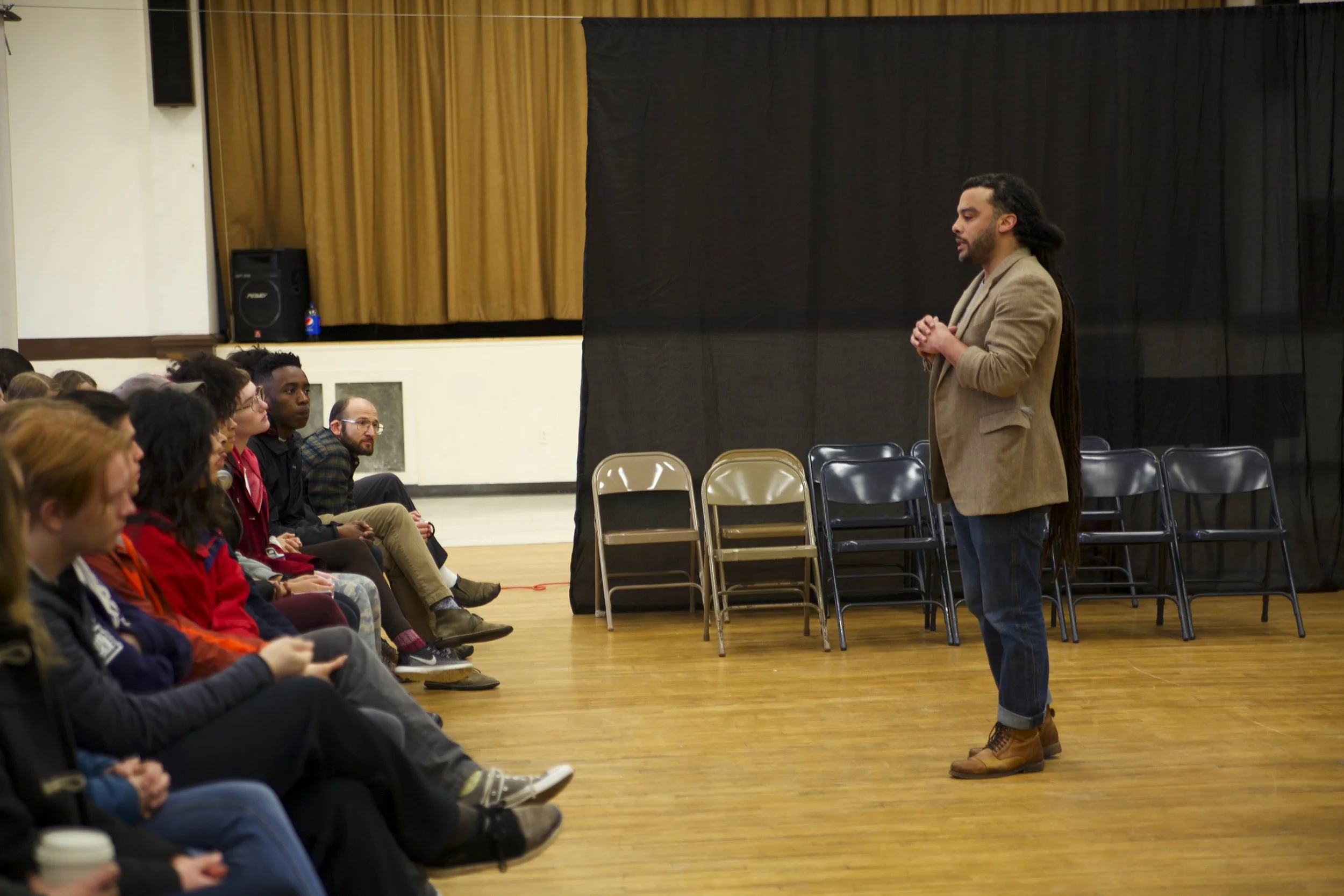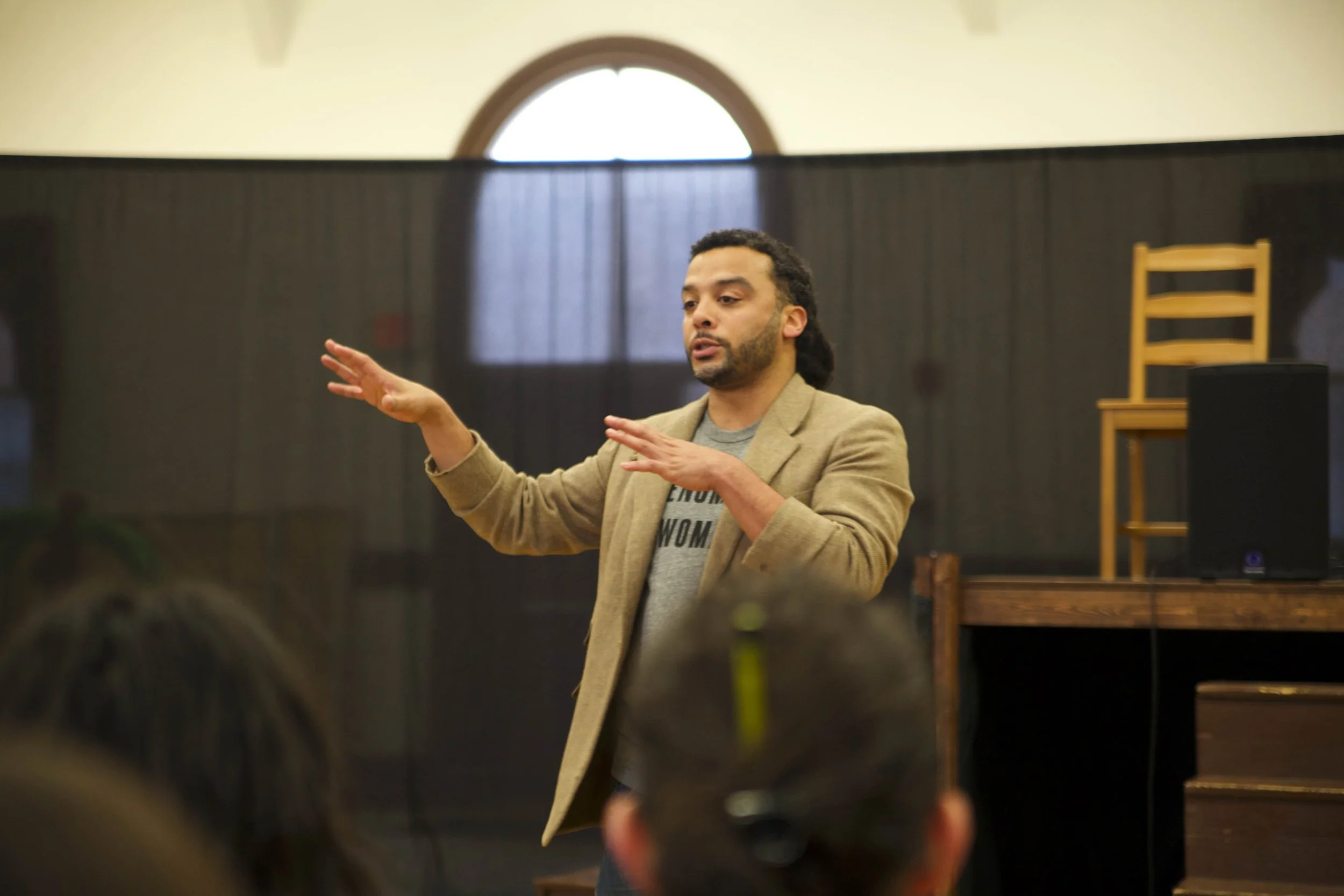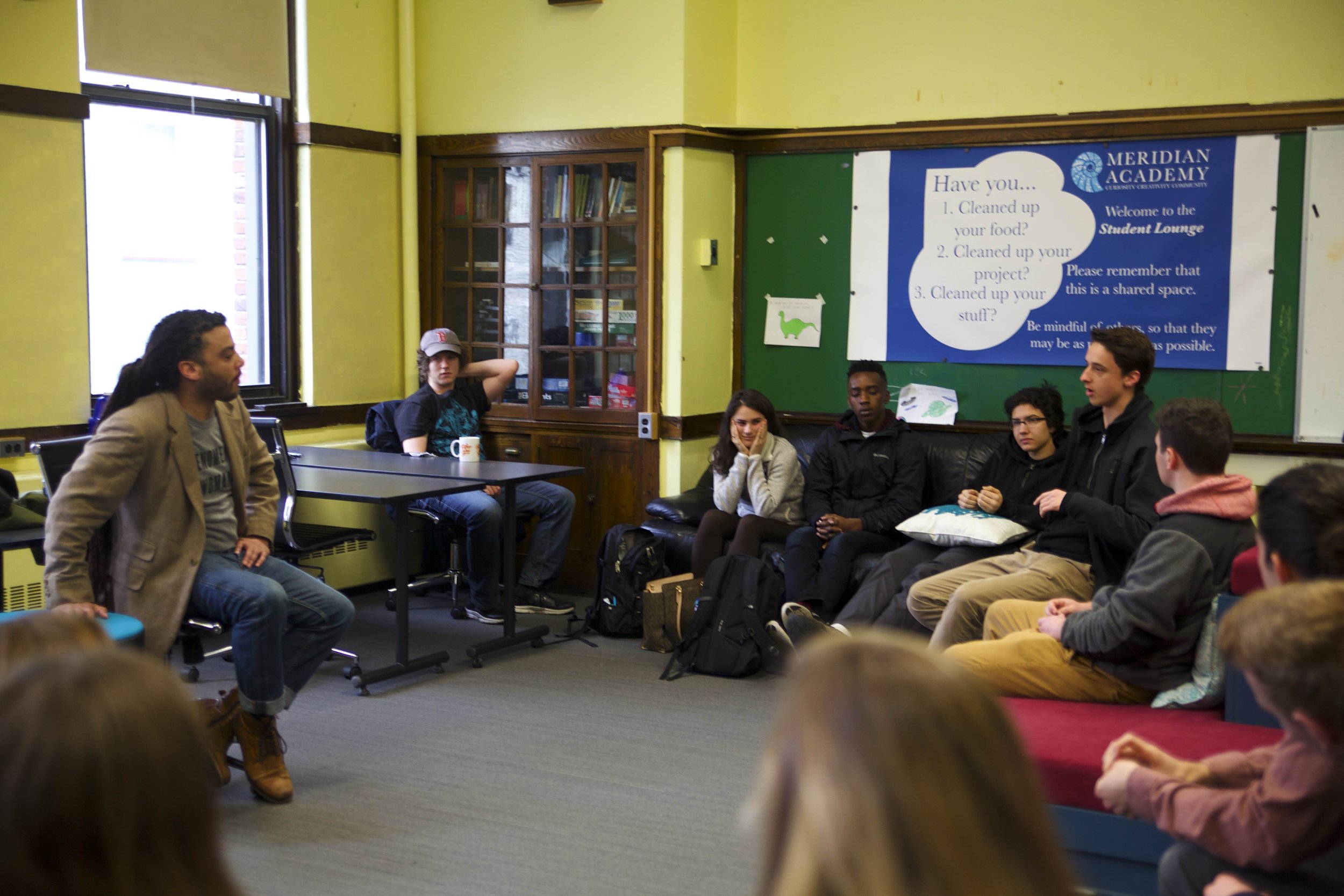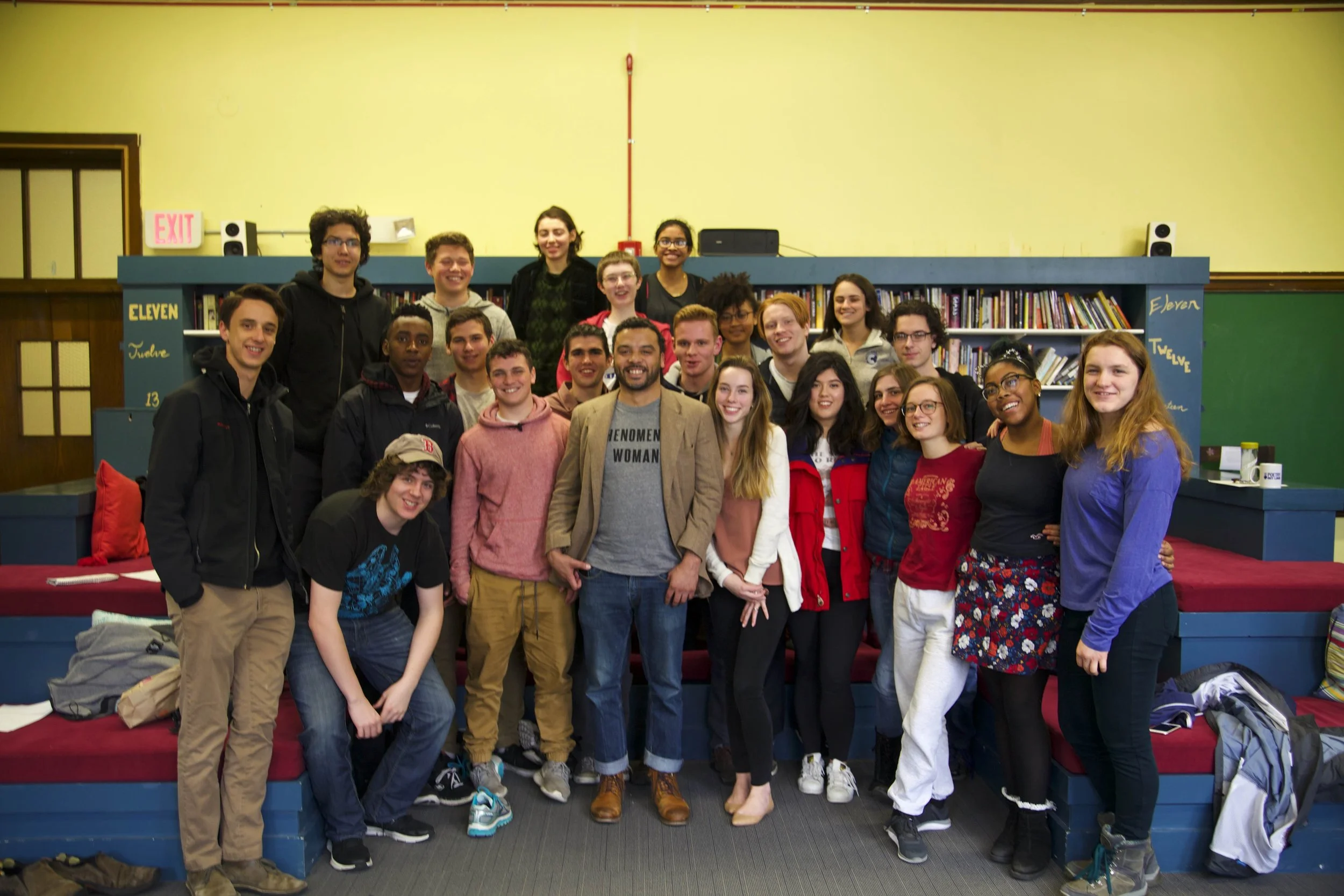Reexamining Criminal Justice Reform: A Visit from Adam Foss
Conversations about the American criminal justice system are not new to many Meridian students. In the Division 3 American Historiography class, students read Michelle Alexander’s The New Jim Crow, and students across courses regularly read authors such as Ta-Nehisi Coates and Angela Davis. These authors explore the racial disparities in the justice system, including the relatively recent skyrocketing of America’s prison population from about 150 per 100,000 in 1970 to 700 per 100,000 today, according to the Prison Policy Initiative.
While we often discuss the roles that activists, judges, police, and public defenders have in combatting these disparities, it was not until a recent visit from former Boston prosecutor Adam Foss that many students perceived the potent role that prosecutors can play as well. As Foss explains in his TED Talk, “prosecutors are the most powerful actors in the criminal justice system. Our power is virtually boundless. In most cases, not the judge, not the police, not the legislature, not the mayor, not the governor, not the President can tell us how to prosecute our cases.” In fact, as Foss explained during the morning he spent with us, criminal justice reform is not about reform at all, but rather about enforcing the laws already on the books and disincentivizing the competition between lawyers that is so commonplace in the courtroom. Currently, the courtroom places the defense attorney and the prosecutor at odds with each other (and shows such as Law & Order enculturate this idea in the public’s mind), but this is not inevitable. As Foss argues, if courtrooms radically alter the lives of the people who pass through them, why are lawyers encouraged to compete over the fates of others? Why can the process not be one based in reason, dignity, justice, and rehabilitation?
After challenging our community to think about these various issues, Foss spent another hour with the Division 4 Humanities. Currently, this class is studying systemic inequalities including education, criminal justice, labor and housing markets, and media representation.
During this conversation, Foss turned his focus toward local issues, emphasizing the ways in which students can make a difference in their own community. He asked “Do any of you know who Boston’s current D.A. is or what his policies are?” The room was silent. In his usual style, Foss saw an opportunity. “Well, he’s up for reelection in two years, when all of you will be able to vote. Learn his issues. Vote for what you believe in.”




